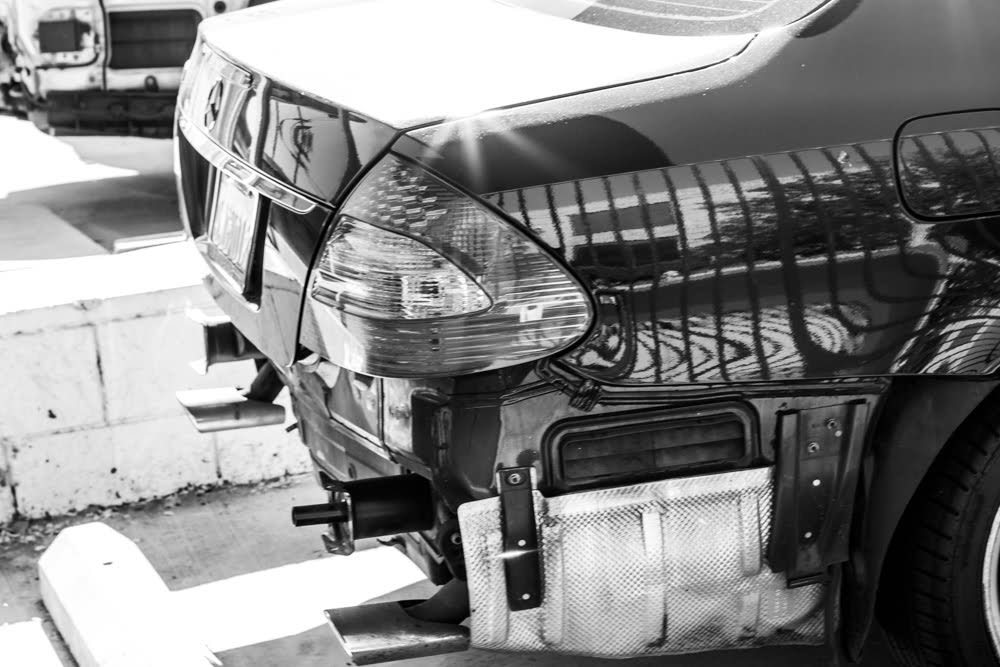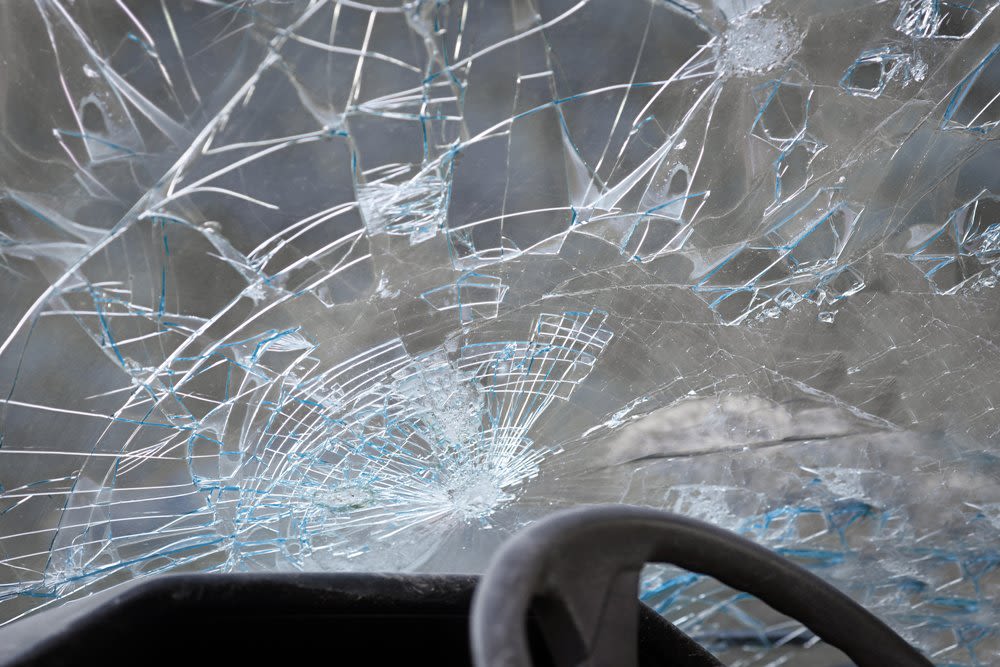
Auto accidents can disrupt every part of your life—from your physical well-being to your financial stability. The aftermath often brings a wave of stress: mounting medical bills, missed work, dealing with insurance adjusters, and ongoing pain or trauma.
These challenges are even harder when it feels like the responsible party or their insurer is trying to minimize your suffering. If you've been injured in a car crash, you deserve to be treated fairly—not pressured into an unfair settlement.
At Harrell & Paulson, we help auto accident victims in Kaufman, Heath, Forney, Terrell, and Rockwall, Texas, fight for compensation. Attorneys C. R. Harrell and David Paulson understand how insurance companies operate, and they know what it takes to negotiate from a position of strength.
Whether you're recovering from a serious injury or managing the long-term impact of a crash, you don’t have to face the legal process alone. Reach out to us today to talk about how we can help you negotiate a settlement in your auto accident litigation case.
Know What Your Case Is Worth Before Negotiating
Before you even begin the negotiation process, you need to know what your claim is truly worth. Too often, accident victims are offered low settlements because they haven't yet calculated their full losses. Insurance companies count on this lack of preparation to save money.
To value your case accurately, consider all of the following:
Medical expenses: Include past, present, and expected future medical costs—hospital bills, therapy, surgeries, and medications.
Lost income: Factor in time off work as well as any impact on your ability to earn income in the future.
Pain and suffering: Physical pain, emotional distress, and disruption to your daily life should be included in your settlement value.
Property damage: The cost to repair or replace your vehicle, personal items inside the car, or other affected property.
Out-of-pocket expenses: Travel to medical appointments, rental cars, or home modifications due to injury.
Once you’ve identified these losses, you’ll have a clearer picture of what a fair settlement looks like—and you’ll be much better positioned to counter lowball offers.
Be Cautious When Dealing With Insurance Adjusters
Shortly after an accident, an insurance adjuster may contact you to ask questions or offer a settlement. It might seem like they’re trying to help, but their job is to protect the company’s bottom line. They may appear friendly while asking leading questions or pressuring you to accept less.
When talking to insurance adjusters, keep these tips in mind:
Don’t admit fault: Even offhand comments like “I didn’t see them coming” can be used against you.
Don’t accept a quick settlement: Early offers rarely reflect the full value of your claim.
Don’t provide a recorded statement: Politely decline until you’ve spoken with a lawyer.
Stick to the facts: If you do speak to an adjuster, keep your statements brief and factual.
Let your attorney handle communication: The best way to protect your rights is to let your legal representative deal directly with the insurer.
Avoiding these common pitfalls during your auto accident litigation case helps preserve your credibility and strengthens your negotiating position later on.
Build a Strong Case With Solid Evidence
Negotiation power comes from preparation. The more evidence you can provide to support your claim, the harder it becomes for the insurance company to deny or downplay your injuries.
Important types of evidence to gather include:
Accident reports: Police or crash reports provide an official account of what happened and may include witness names or citations.
Medical records and bills: These show the extent of your injuries and the treatment required.
Photos and videos: Images of the scene, your injuries, and vehicle damage can be powerful.
Witness statements: People who saw the accident may confirm your version of events.
Employment records: These help document lost wages or diminished earning capacity.
A strong auto accident litigation case isn’t just about proving who was at fault—it’s about showing the full extent of how the accident has affected your life. That’s what will influence the value of a potential settlement.
Be Ready to Reject Low Offers
It’s not uncommon for insurance companies to open negotiations with a figure far below what your claim is worth. Their goal is to settle the claim quickly and cheaply. Don’t let the pressure of medical bills or lost income force you into accepting less than you need.
Reasons why rejecting a low offer may be in your best interest:
It may not cover future costs: Some injuries take time to fully reveal their impact, especially with head, back, or soft tissue trauma.
It sets a precedent: Accepting too quickly may signal you’re willing to settle for less.
It may limit your legal options: Once you accept a settlement, you can’t go back for more—even if new issues arise later.
Countering a low offer with a well-reasoned response backed by evidence can show the insurer that you're serious and informed. This is when having an auto accident litigation lawyer makes a big difference—they know what offers are fair and how to push back effectively.
Time Your Settlement Wisely
There’s no one-size-fits-all answer for when to settle a personal injury claim. Settling too early may leave you without the resources you need down the road. Waiting too long, however, can drag out the process unnecessarily or even put your claim at risk if deadlines pass.
Factors to consider before settling your case:
Maximum medical improvement (MMI): This means your condition has stabilized and further treatment is unlikely to improve it. You’ll have a clearer sense of long-term costs at this point.
Length of recovery: Serious injuries may require extended rehab, surgery, or months of physical therapy—wait until you understand those needs.
Statute of limitations: In Texas, you typically have two years from the date of the accident to file a lawsuit. Don’t let that deadline pass.
Ongoing damages: If you’re still missing work or facing emotional trauma, those losses should be included in the settlement.
Timing is strategic. Your lawyer can help you decide when the moment is right to finalize your claim based on both medical and legal considerations.
Use Negotiation Tactics That Work
Negotiation is part strategy, part communication. Knowing what to say—and when to say it—can significantly increase the value of your settlement. Your attorney’s skill in this area can make a noticeable difference.
Some effective negotiation strategies in auto accident claims include:
Make a strong first demand: Backed by evidence, your initial offer should reflect the full scope of your losses.
Don’t reveal your bottom line: Keep some flexibility to adjust as the negotiation progresses.
Be calm and professional: Emotional reactions can undermine your credibility.
Justify your demand: Provide clear reasons and documentation to support the amount you’re requesting.
Respond quickly but not impulsively: Review all offers carefully with your attorney before responding.
Be prepared to litigate: If negotiations stall, showing you're ready to go to court can increase pressure on the insurer to settle fairly.
Being informed and measured in your responses sends a clear message: you’re not backing down without fair compensation.
Let a Personal Injury Attorney Handle Negotiations
Trying to deal with insurance companies alone can be frustrating and stressful. An attorney can take over that burden and put you in a stronger position to receive a fair settlement. You shouldn’t have to worry about legal procedures or getting taken advantage of while you’re trying to recover from an injury.
Here’s how a lawyer helps during settlement negotiations:
Reviews all offers and counteroffers: Making sure they align with the full value of your case.
Handles all communication: You won’t have to speak to adjusters or worry about saying the wrong thing.
Provides legal insight: Helps you avoid signing away your rights or agreeing to an offer that seems fair but isn’t.
Pushes back on delay tactics: Insurance companies may try to stall, hoping you’ll settle out of desperation.
Takes the case to trial if needed: If a fair deal can’t be reached, your attorney can file a lawsuit and represent you in court.
Having an advocate on your side means you're not negotiating from a place of weakness. It gives you the power to say “no” to unfair offers.
Reach Out to an Auto Accident Litigation Attorney
If you’ve been injured in an auto accident in Kaufman, Heath, Forney, Terrell, or Rockwall, Texas, don’t let insurance companies decide what your recovery is worth. You have the right to pursue a settlement that reflects your losses, your pain, and your future.
At Harrell & Paulson, our trusted auto accident litigation attorneys have helped countless clients successfully negotiate settlements after serious car crashes. Attorneys C. R. Harrell and David Paulson are here to help you take control of the process and demand full, fair compensation.
Whether you're just getting started or need help responding to a low offer, we’re ready to step in and fight for you. Reach out to us today for a consultation and learn how we can support your claim from start to settlement.



